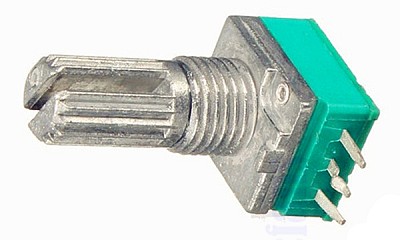Pjdd
Advanced Member level 2
The potentiometer in the image is smaller than the more common round type and seems to be better sealed against dust. I was wondering if anyone here has used this type and can share their experience. It's a carbon type and should in principle be suitable for frequent adjustments such as in audio controls. There are the usual variants - dual (stereo), with and without a switch.
Of course there can be good and bad products in any style of construction, but your experience (or that of a third-party source you consider to be reliable) will be helpful.

Of course there can be good and bad products in any style of construction, but your experience (or that of a third-party source you consider to be reliable) will be helpful.
